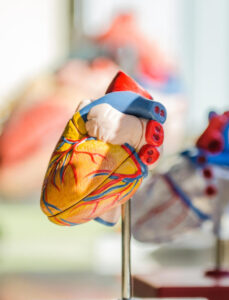There are three different types of fractures: traumatic, stress, and compression. A traumatic fracture is usually the result of an injury such as a fall. A stress fracture, however, is more often the result of a repetitive motion which gradually causes the bone to crack. A compression fracture, or a spontaneous fracture, occurs randomly, not as the result of any accident or movement. Compression fractures often occur in elderly people with osteoporosis or frail bones. A Georgia nursing home broken bones and bone fractures lawyer could further explain how these injuries may indicate abuse or neglect.
How are Broken Bones Caused by Nursing Home Neglect or Abuse?
Broken bones in nursing home residents may occur for several reasons, including unsafe conditions, improper care, and abuse. Environmental hazards like slippery floors, obstructed hallways, or dim lighting are all factors that can cause a resident to fall – especially if that resident already suffers from weak muscles or poor coordination. Many residents need assistance getting in or out of bed or walking to another room, and if the nursing home fails to provide help, the resident may try to accomplish these actions alone, resulting in a fall.
Additionally, residents with certain conditions may be more prone to injury and fractures, and may require special care to prevent broken bones. Caregivers may cause injury through neglecting a resident’s individual needs, which might include moving them unsafely or failing to use devices like wheelchairs and walkers as needed.
A less common cause of broken bones is nursing home abuse. Unfortunately, caregivers sometimes abuse residents physically, causing injuries like fractures and broken bones.
For a free legal consultation with a nursing home broken bones lawyer serving Georgia, call

What Should a Nursing Home do to Prevent Broken Bones?
Two of the best things nursing homes can do to prevent broken bones are to keep the nursing home environment free from accident hazards and provide assistance and supervision to residents who may be prone to falls.
Some accident hazards may seem obvious – such as wet floors or large objects obstructing doorways or walkways. But other hazards include poor lighting, chairs without armrests, lack of hand rails and grab bars, and rugs that a resident could trip on. Nursing homes are responsible for eliminating as many of these hazards as possible, as well as ensuring that residents have access to assistive devices and caregiver help whenever necessary.
Caregivers should assess each resident regularly to determine any risk factors for broken bones, including decreased physical and mental abilities, weakness, and frail bones. Additionally, nursing homes should make sure residents always have access to call buttons so that they can call for assistance when needed.
Georgia Nursing Home Broken Bones Lawyer Near Me (678) 823-7678
Consult a Georgia Nursing Home Abuse Lawyer on Broken Bone Claims
Some accidents are unavoidable, but in many cases, a nursing home can be held responsible for broken bones. For example, if a resident suffers from Parkinson’s disease and needs help walking, but the nursing home fails to provide this help, then if the resident falls and sustains a broken bone while walking unaided, there’s a good chance the nursing home will be held responsible for the accident.
In this case, the nursing home will be required to pay the resident damages for the injury. These damages might include the cost of medical bills resulting from the injury, and any pain and suffering experienced by the resident in connection with the broken bones.
If a nursing home resident breaks a bone due to a caregiver’s lack of proper medical training, or due to abuse from a caregiver, then the nursing home may likewise be held responsible for the injury, and will have to pay damages to the resident. A Georgia nursing home broken bones and bone fractures lawyer could help pursue a claim for damages. Call today to learn more.




